BEIRUT: Free Patriotic Movement leader Michel Aoun vowed Friday to keep pushing for the presidential seat, insisting he is the most popular Christian candidate, and the only one who could win over March 14 votes. “There is only one faction that could secure a majority vote with March 14 and that is the Change […]
Prime Minister Tammam Salam stressed on Friday that politics in Lebanon should return to the “right path” by serving the interests of the people. He said: “We must restore normalcy to our state institutions, return to dialogue, and elect a new president.” He made his speech during the opening of Beirut’s 58th annual International […]
“Akl loved Lebanon and raised its name high,” al-Rahi said, adding that the poet “considered Lebanon an extraordinary country.”
(Link)
Lebanon’s Christian Maronite Patriarch Beshara al-Rai heads the prayers during the funeral of Lebanese poet Said Akl at St. Georges church in downtown Beirut December 2, 2014. Said Akl, one of Lebanon’s most prominent 20th-century poets, died on Friday at over 100 years of age. REUTERS/Mohamed Azakir (LEBANON – Tags: OBITUARY RELIGION)
Lebanese politicians attend the funeral of Lebanese poet Said Akl at St. Georges church in downtown Beirut December 2, 2014. Said Akl, one of Lebanon’s most prominent 20th-century poets, died on Friday at over 100 years of age. REUTERS/Mohamed Azakir (LEBANON – Tags: OBITUARY RELIGION)
People carry the coffin of Lebanese poet Said Akl during his funeral at St. Georges church in downtown Beirut
Lebanese singer Majida al-Roumi pays her respects next to a coffin bearing the body of Lebanese poet Said Akl during his funeral at St. Georges church in downtown Beirut
Abdel-Halim Caracalla (L), founder of the Caracalla Dance Theatre pays his respect with poet Talal Haidar next to a coffin bearing the body of Lebanese poet Said Akl during his funeral at St. Georges church in downtown Beirut December 2, 2014. Said Akl, one of Lebanon’s most prominent 20th-century poets, died on Friday at over 100 years of age. REUTERS/Mohamed Azakir (LEBANON – Tags: OBITUARY RELIGION)
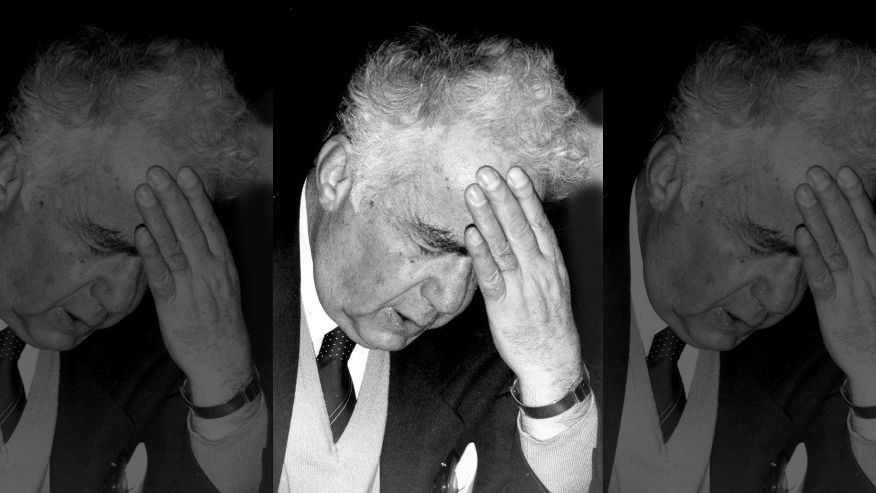
n this September, 1983 photo, Prominent Lebanese poet Saeed Akl gestures at his home, in Beirut, Lebanon. Lebanon’s state-run news agency says Saeed Akl, Lebanon’s leading poet whose fame once spread throughout the Arab world, has died. He was 102. The ultra-nationalist Akl wrote his poems in classical Arabic as well as Lebanese dialect which he used to refer to as “the Lebanese language.” (AP Photo/Stavro Jabra) (The Associated Press)
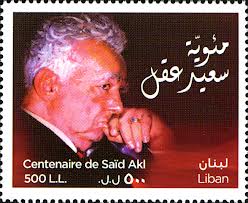
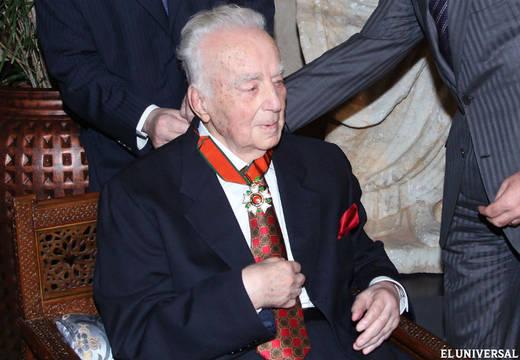
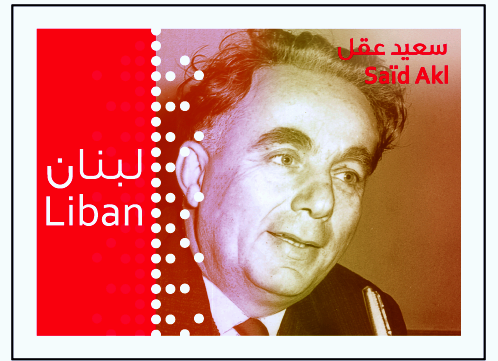
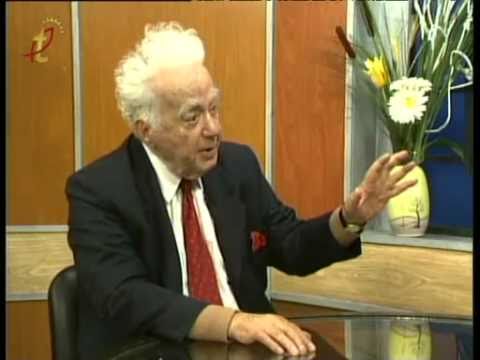
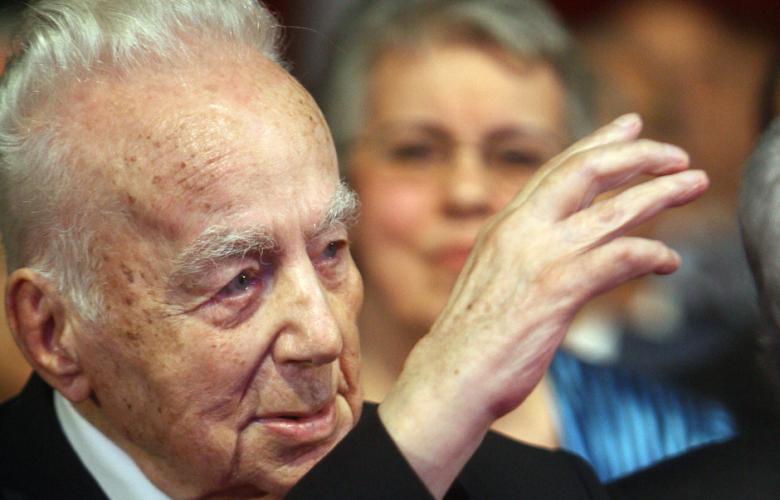
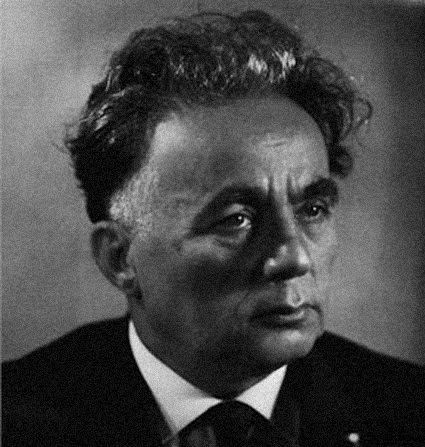
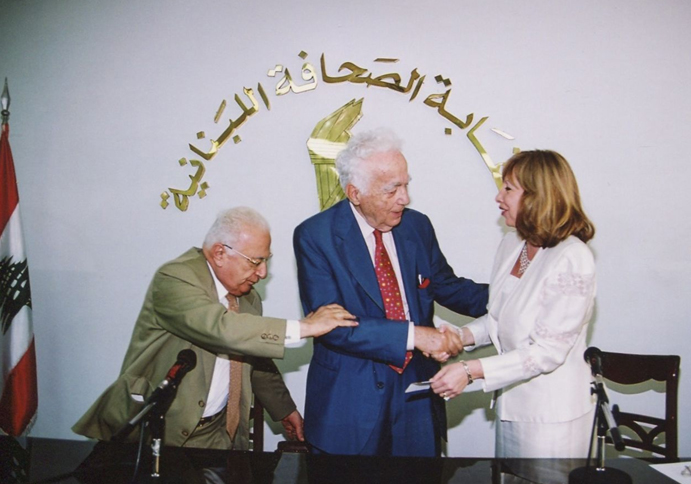
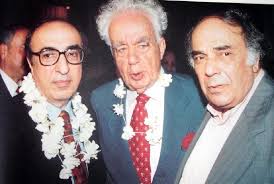
Saeed Akl, Lebanon’s leading poet whose fame spread throughout the Arab world, has died, state media and officials said Friday. He was 102. The ultra-nationalist Akl wrote his poems in classical Arabic as well as the Lebanese dialect, which he referred to as "the Lebanese language." Some of his most famous poems were sung by Lebanon’s top singer, Fayrouz, including the emotional "Take Me Back to My Country," a song that was played endlessly on radios during the country’s 15-year civil war. He also wrote a song about the Palestinian struggle, "Now, and not tomorrow, the bells of return shall ring," written after Israel seized east Jerusalem, the West Bank and the Gaza Strip in 1967.
Famous for his radical Lebanese nationalism, Akl, also known as the "Little Poet," promoted the use of Lebanese dialect written in modified Roman script rather than the modern standard Arabic and alphabet. He was defined by his Phoenician-centered nationalism, which made him popular among many Lebanese and controversial among others. After having left the Syrian Social Nationalist Party, Akl became one of the leaders of the Guardians of the Cedars, a nationalist political party created during the Lebanese Civil War which was part of the Lebanese Front forcing Palestinians miltary factions out of Lebanon.
Although mostly known for his poetry, the deceased writer was also a journalist and wrote for several newspapers such as Al-Jarida, Al-Sayyad, and had a column in Assafir in the 1990s. Considered one of the most notable modern Lebanese poets, Akl wrote in Arabic and French. His poetical works include “The Jasmine Bells,” “Poems from Her Notebook,” “Like Pillars,” and “Carving in Light.” Legendary Lebanese singer Fairouz sang more than a dozen of his poems such as “Roddani Ila Biladi” (Take Me Back to my Country), “Ghanaytu Mekka” (I sang to Mekka), “Ummi ya Malaki” (My Mother, My Angel), and “Kara’tu Majdaka” (I Read your Glory).
Akl wrote three plays in poetic form, “The Daughter of Jephthah,” “The Magdalena” and “Cadmus,” and also published prose that includes “Loubnan in Haka” (If Lebanon Were to Speak).
His funeral will take place on Tuesday, December 2 at the Saint Georges Cathedral in downtown Beirut at 11:30 am, according to Notre Dame University.
But during the 1975-1990 civil war, Akl was known for his anti-Palestinian statements, and once praised the late Israeli Prime Minister Menachem Begin for invading Lebanon.
"The hero Begin should continue cleansing Lebanon to the last Palestinian," he said in an interview in 1982, the year the Jewish State began an 18-year occupation of Lebanon. Akl was born in 1912 to a Maronite Catholic family in Lebanon’s eastern city of Zahle. After the death of his father, Akl dropped out of school at the age of 15 to help his family. He later wrote for leading Lebanese newspapers and magazines, and penned some plays. "Lebanon and the Arabs lost one of the giants of poetry," wrote former Prime Minister Saad Hariri on his Twitter account.
BEIRUT: Former Prime Minister Saad Hariri said Thursday that he was “serious” about holding dialogue with Hezbollah in the interest of Lebanon, but would not back down over the party’s intervention in Syria, renewing calls for Hezbollah to withdraw its forces. “I am with dialogue and not just for the sake of dialogue but […]
BAALBEK, Lebanon: The Army erected many checkpoints and enhanced security measures Thursday in a neighborhood of Baalbek as part of the agenda to expand the security plan to cover east Lebanon. Five checkpoints were established in the neighborhood, home to many families from the Jaafar clan, but no raids were carried out. (Link)
A technical coordination committee was formed on Thursday to follow up the recent food scandal, which saw the closure of restaurants, slaughterhouses and other institutions since Health Minister Wael Abou Faour launched his campaign against violators earlier this month. The ministerial committee on food safety met under Prime Minister Tammam Salam at the Grand […]

The European Parliament has passed a historic vote to break up US tech giant Google.
The EU doesn’t actually have the power to break up the company, but it does send a message to Google that the EU is unhappy with its business practises.
Legislators in Strasbourg voted 458 to 173 in favour of the proposal.
The European Parliament has never voted to break up a company before, making this a historic decision. The antitrust commission is concentrating on four areas of investigation:
- The way Google displays its search services compared to its competitors.
- How Google uses content from other websites.
- Google’s dominance over advertising on search terms.
- Restrictions that surround how advertisers can move their campaigns to other search engines.
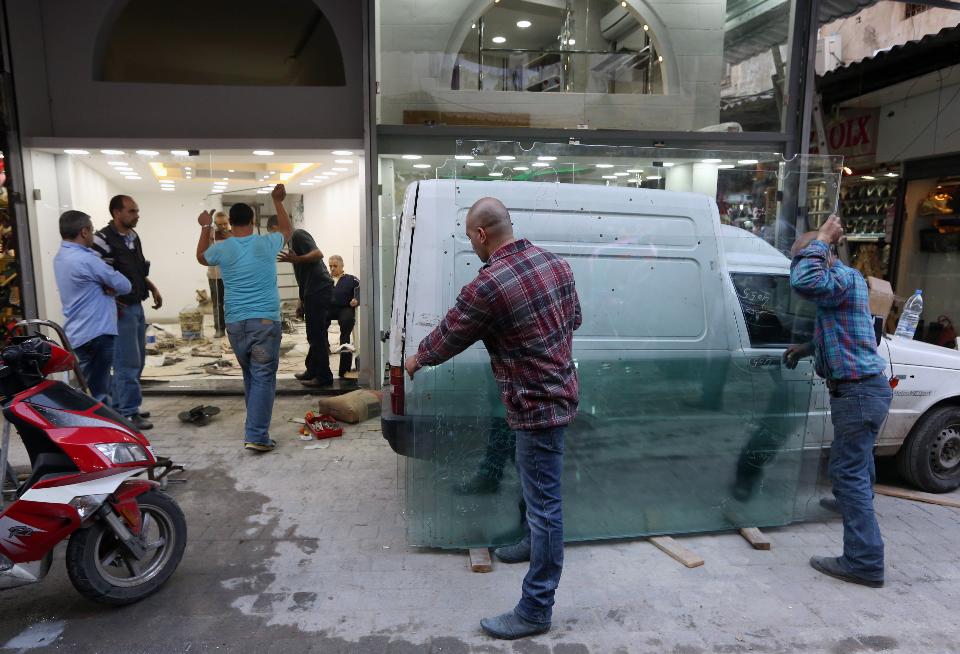
In this Thursday, Nov. 20, 2014, Lebanese people reconstruct their shop that was damaged due to clashes between the Lebanese army and Islamic militants in the northern port city of Tripoli,
Diaa Hadid- AP
TRIPOLI, Lebanon (AP) — Jamal Hayak is finally fixing up his restaurant, damaged a month ago in clashes between the army and militants in this northern Lebanese city. But he has little doubt violence will erupt again, and he says he fears next time it will be Islamic State group fighters battling in Tripoli’s streets. "In the beginning we used to say. ‘This is the last time.’ Now we’ve had Round 21 and 22 (of fighting), so we say God knows," said Hayak, 56, grimy with dust as he fixed his shop, shelled during the four days of fighting in late October that killed over 20 people.
Sunni Muslim-majority Tripoli is seen as particularly vulnerable to becoming a foothold for militants from Syria, including the Islamic State group, to expand into Lebanon. Years of neglect have deepened poverty in the city, Lebanon’s second largest. Many among its conservative Sunni residents are bitter over what they see as domination of the central government by Shiites, the Hezbollah guerrilla group in particular — giving fertile ground for the sectarian hatred that militants often feed on.
The city also has a geographical sectarian fault line, worsened by Syria’s civil war. Clashes have erupted some two dozen times in the city the past three years, mostly between the neighboring districts of Bab Tabbaneh and Jabal Mohsen. Bab Tabbaneh is majority Sunni, like Syria’s rebels, and Jabal Mohsen’s residents are mostly Alawites, the offshoot of Shiite Islam to which Syrian President Bashar Assad belongs.
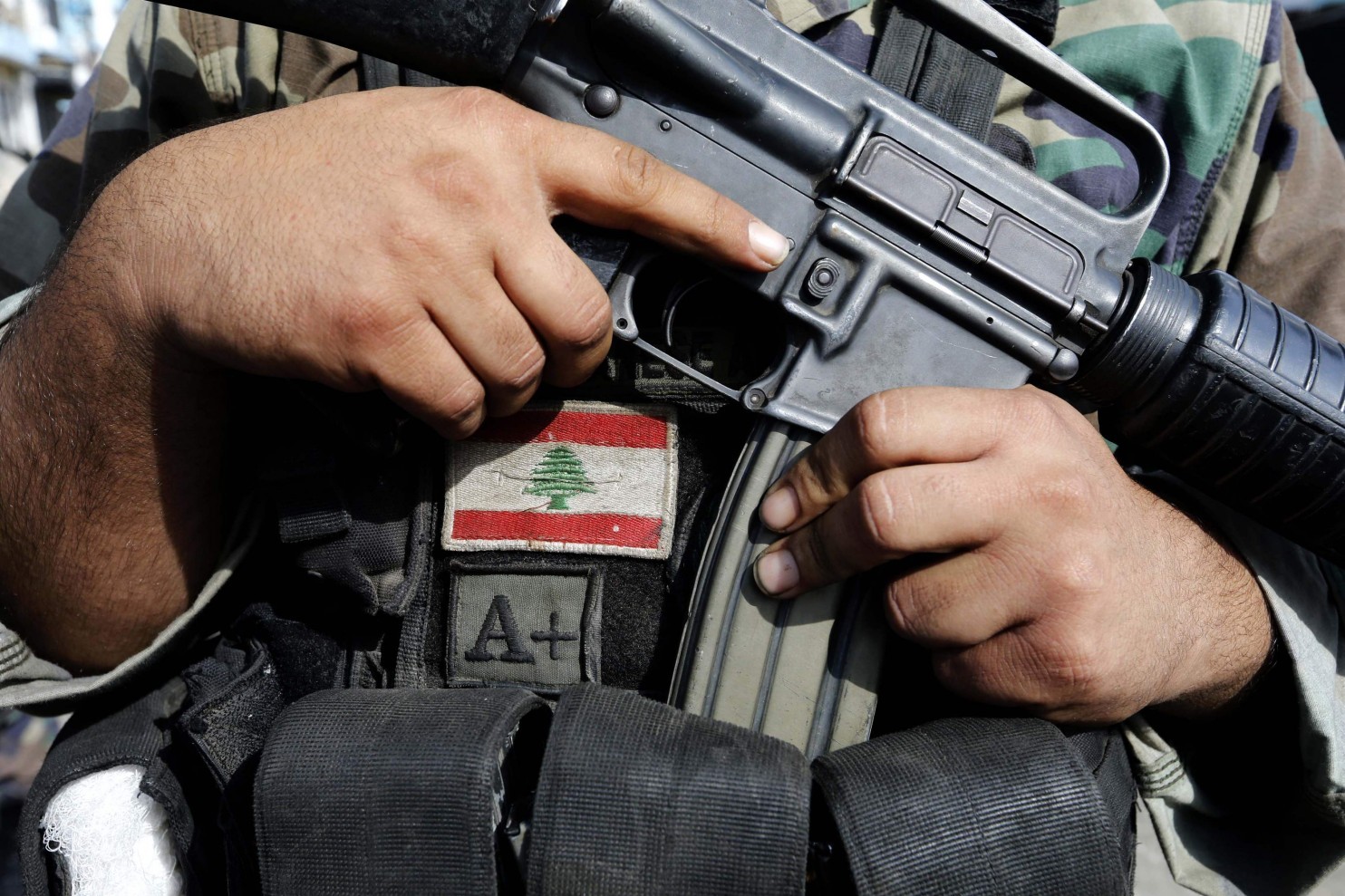
TRIPOLI, Lebanon — The black-and-white flags of al-Qaeda’s wing in Syria still flutter over this impoverished city in northern Lebanon. And the anger that fueled a major clash last month involving Sunni extremists still simmers underneath a shaky calm. The Lebanese military now controls Tripoli. But the militants who fought street-by-street battles with soldiers represent a growing challenge to the stability of this already deeply divided country.The militants are Lebanese citizens who went to fight in Syria’s civil war, assisted by money and weapons from Sunni politicians here, according to religious leaders, politicians and military officials.
The Sunnis sympathize with the rebellion led by Syria’s majority Sunnis against a government dominated by Alawites, whose faith is an offshoot of Shiite Islam.
In Syria, the young militants became radicalized by such groups as the Islamic State and Jabhat al-Nusra, al-Qaeda’s Syrian affiliate, religious leaders and politicians say. Now, back in Lebanon, they are increasingly clashing with the military.
SIDON, Lebanon: The Lebanese Army held Palestinian factions in the port city of Sidon responsible for hiding Islamist fugitives at Lebanon’s biggest Ain al-Hilweh refugee camp. The reproach was made by head of Lebanese Army Intelligence in south Lebanon, Brig. Gen. Ali Shahrour, at a meeting at Sidon’s Army Barracks with officials from the […]



